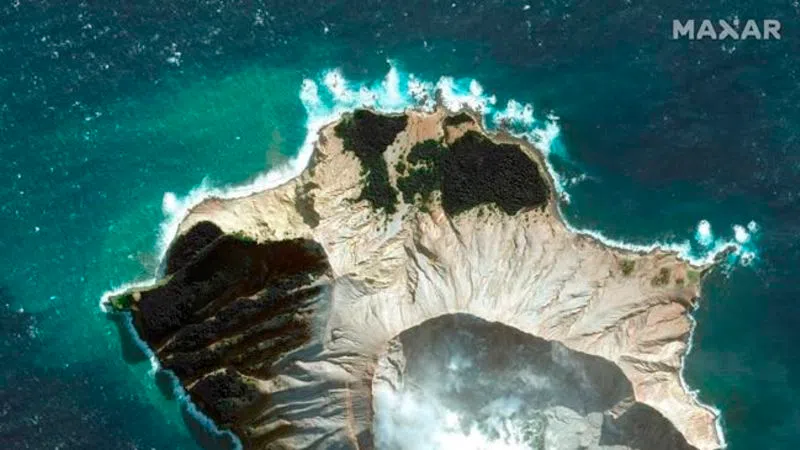
Up to 13 feared dead in volcanic eruption off New Zealand
TAURANGA, New Zealand — A volcano off the New Zealand coast erupted Monday with a towering blast of ash and scalding steam as dozens of tourists were exploring its moon-like surface, killing five people and leaving eight others missing and feared dead, authorities said.
Helicopter crews landed on White Island despite the danger and helped evacuate the dozens of survivors, some of them critically injured.
Hours after the disaster, authorities said the site was still too dangerous for rescuers to search for the missing. But aircraft flew over the island repeatedly, and “no signs of life have been seen at any point,” Prime Minister Jacinda Ardern said.
The missing and injured included New Zealanders and tourists from Australia, the U.S., China, Britain and Malaysia, the prime minister said. Some of those who were exploring White Island volcano were passengers from the Royal Caribbean cruise ship Ovation of the Seas, docked on neighbouring North Island.


